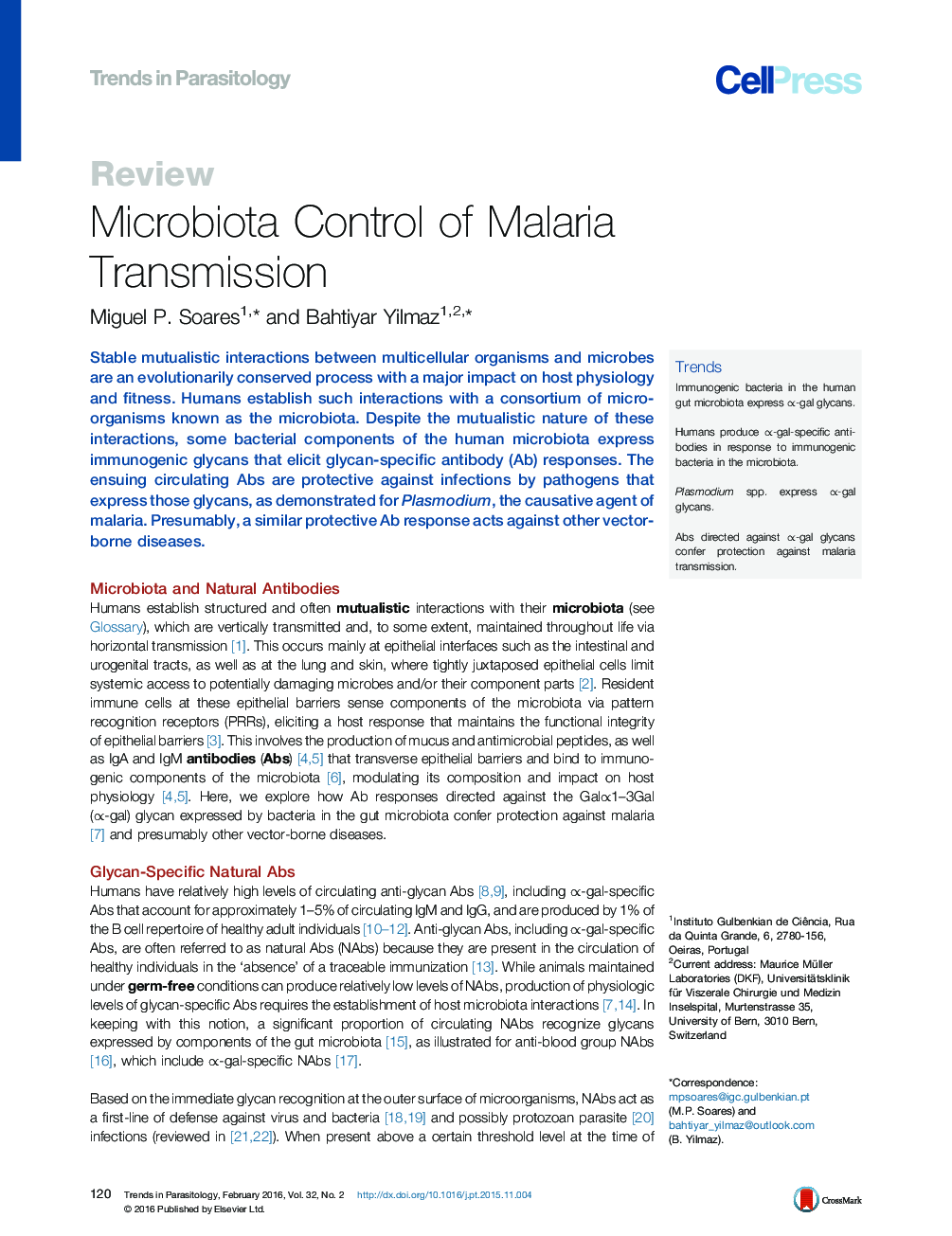| Article ID | Journal | Published Year | Pages | File Type |
|---|---|---|---|---|
| 3422993 | Trends in Parasitology | 2016 | 11 Pages |
Stable mutualistic interactions between multicellular organisms and microbes are an evolutionarily conserved process with a major impact on host physiology and fitness. Humans establish such interactions with a consortium of microorganisms known as the microbiota. Despite the mutualistic nature of these interactions, some bacterial components of the human microbiota express immunogenic glycans that elicit glycan-specific antibody (Ab) responses. The ensuing circulating Abs are protective against infections by pathogens that express those glycans, as demonstrated for Plasmodium, the causative agent of malaria. Presumably, a similar protective Ab response acts against other vector-borne diseases.
TrendsImmunogenic bacteria in the human gut microbiota express α-gal glycans.Humans produce α-gal-specific antibodies in response to immunogenic bacteria in the microbiota.Plasmodium spp. express α-gal glycans.Abs directed against α-gal glycans confer protection against malaria transmission.
